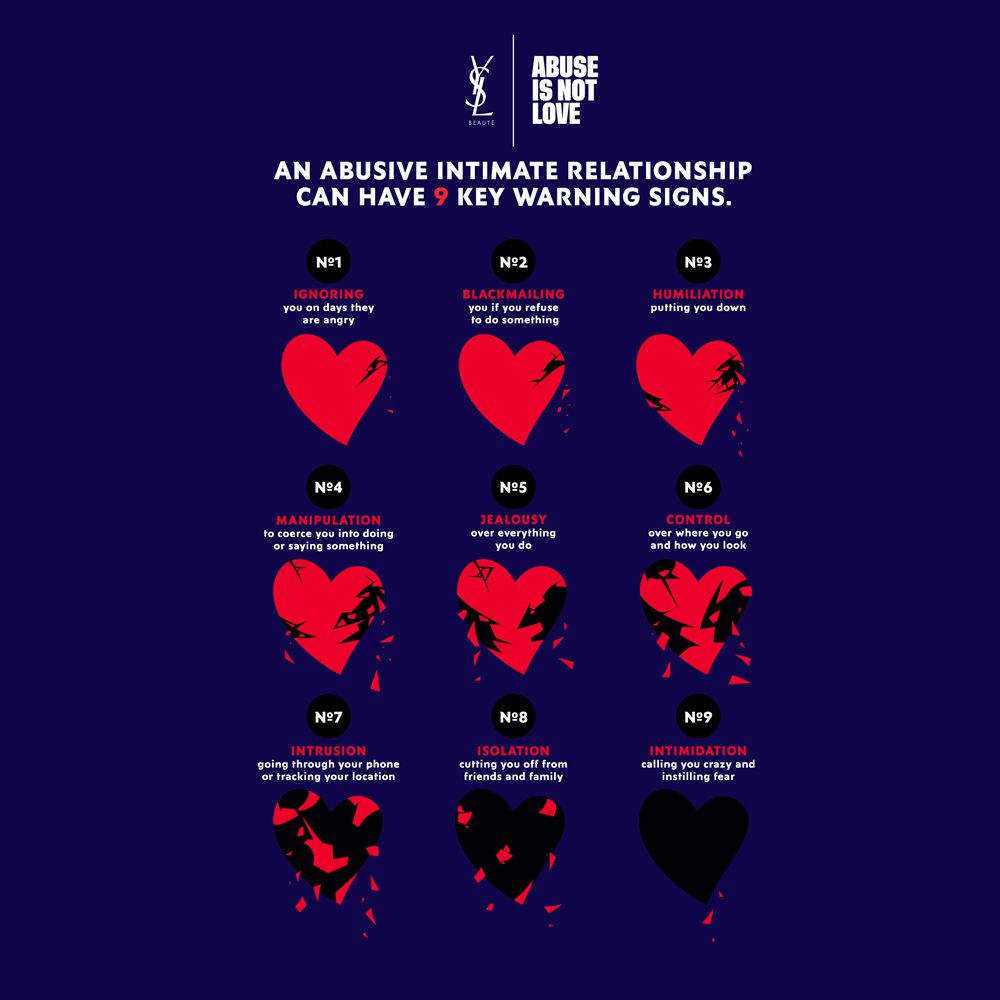YSL Beauty is behind a global campaign, Abuse is Not Love aimed at preventing Intimate Partner violence (ipv).
In Australia, one in three women will experience intimate partner violence (IPV) in their lifetime and this year, 56 women have died at the hands of their partner here in Australia. This shocking statistic is a stark reminder of the urgent need to address this issue.
Yves Saint Laurent Beauty, a brand with a rich history of empowering women, has partnered with FVREE, an Australian organization specializing in IPV, to launch the Abuse is Not Love program. This program aims to equip young Australians with the knowledge and tools to identify and prevent IPV.

The program has three key pillars:
- Financial support: Yves Saint Laurent Beauty provides financial support to FVREE to enable the organization to continue its important work in informing, preventing, raising public awareness, and supporting survivors of IPV.
- Training: Yves Saint Laurent Beauty employees, including in-store sales advisors, receive training to understand the nature of IPV and how to recognize the signs. This training empowers them to provide support and guidance to customers who may be experiencing IPV.
- Enlightened leadership: Yves Saint Laurent Beauty is committed to promoting enlightened leadership by contributing to studies on IPV prevention among young people. This research helps to inform the development of effective prevention strategies.

The Signs of an Abusive Relationship
The Abuse is Not Love program highlights nine key warning signs of an abusive relationship:
- Jealousy and possessiveness: Your partner is excessively jealous and possessive, trying to control your interactions with others.
- Extreme mood swings: Your partner has extreme mood swings, often becoming angry or violent without warning.
- Blaming and put-downs: Your partner constantly blames you for their problems and belittles you.
- Isolation: Your partner tries to isolate you from your friends and family.
- Unrealistic expectations: Your partner has unrealistic expectations of you and frequently criticizes you for not meeting them.
- Controlling behavior: Your partner tries to control your finances, your activities, and your decisions.
- Threats and intimidation: Your partner threatens and intimidates you to get their way.
- Physical violence: Your partner has hit, slapped, or pushed you, or has threatened to do so.
- Sexual violence: Your partner has forced you into sexual activity that you did not want.

What You Can Do
If you are experiencing IPV, or if you know someone who is, there are resources available to help.
In Australia:
- FVREE: 1800 608 622
- Women’s Information Network (WIN): 1800 191 871
- Men’s Line: 1300 789 007
International:
- Love is Respect: loveisrespect.org
- National Coalition Against Domestic Violence (NCADV): thehotline.org
- AWARE, Inc.: awareinc.org
- Centers for Disease Control and Prevention (CDC):cdc.gov/violenceprevention/intimatepartnerviolence/index.html

